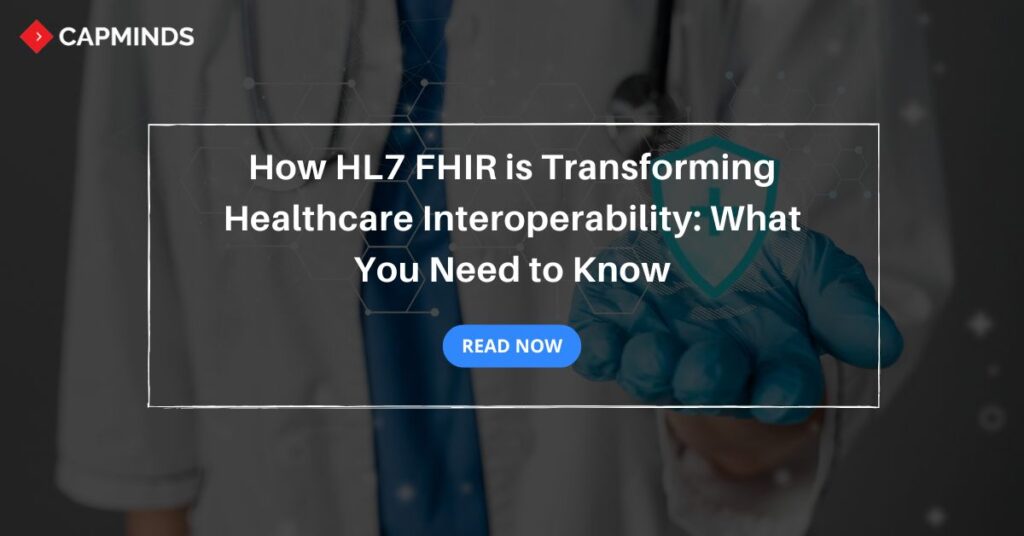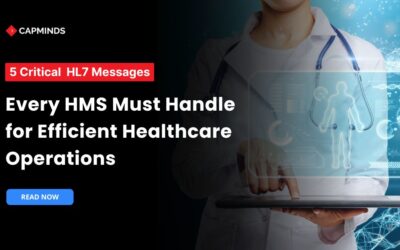How HL7 FHIR is Transforming Healthcare Interoperability: What You Need to Know
Healthcare organizations worldwide have had to endure a big hit because of the flare-up of COVID-19. Since then, people have changed the way they access their care. Patients are effectively engaging on the web to access care, and numerous organizations have gone online to keep in touch with their patients.
With this massive expansion in telehealth, remote patient monitoring, and electronic health records, it is quite critical when we talk about interoperability. But while there has been a shift toward health information exchange, the HL7 FHIR and the shift toward it are nothing new.
The shift has already been taking place and FHIR standards are gaining popularity. Rather, they’ve been around a while but their efficacy is extraordinary support for interoperability has skyrocketed in this digital age. That being said, to flourish in this interoperability age, healthcare providers and vendors must consider FHIR to achieve true interoperability. In this post, we’re going to cover all about FHIR and why it is considered to be a new way towards healthcare interoperability.
What is HL7 FHIR?
Developed by the Health Level Seven organization, FHIR is a new standard describing the data formats for exchanging electronic health records quicker and smarter than before. Combining the key features of HL7 V2, HL7 V3, and CDA, FHIR is termed to be a valuable tool that healthcare innovators can utilize to improve health interoperability.
The primary goal of HL7 FHIR is to facilitate the efficient exchange of clinical and administrative data, or health information, between healthcare providers. With HL7 FHIR, practitioners can:
- Boost data sharing and interoperability throughout healthcare systems
- Uniform data format driven by web technologies
- Resource-based architecture for effective data management.
- Flexibility to satisfy particular organizational requirements
- Enhanced accessibility and scalability.
Related: 5 Challenges Associated with HL7 FHIR and How CapMinds Helps to Solve
Why is Interoperability Important in Healthcare Today?
With the significant rise in telehealth, remote patient monitoring, and electronic health records, the importance of interoperability in healthcare cannot be overstated. While there has been a shift toward health information exchange, it’s essential to recognize that HL7 FHIR is not an entirely new concept.
This transition toward FHIR has been underway for some time, and its standards are gaining traction not due to novelty, but because of their proven effectiveness. As we embrace a more digital healthcare environment, FHIR’s role in supporting interoperability has become even more critical.
How HL7 FHIR Supports Healthcare Interoperability
To succeed in this new era of interoperability, healthcare providers and technology vendors must consider FHIR as a cornerstone for achieving true interoperability.
1. Resource-Based Structure
- FHIR is built upon the concept of “resources.”
- These resources serve as fundamental units of interoperability and can be integrated seamlessly into existing systems to address administrative, clinical, and infrastructure-related challenges in healthcare.
2. RESTful API Architecture
- FHIR’s RESTful architecture is pivotal, as it allows for easy manipulation of healthcare data.
- With its built-in REST API, functions such as POST, GET, and PUT enable efficient creation, retrieval, and management of resources.
3. Data Sharing and Security
- FHIR significantly reduces the time-consuming processes involved in exchanging healthcare data between systems, streamlining data sharing and enhancing overall interoperability.
- Also ensures maximum security for secure data sharing and protection from unauthorized access.
Related: 10 Reasons Why You Need CapMinds’ HL7 FHIR Service for Your Practice
Key Use Cases for FHIR in Healthcare
1. Mobile Applications
FHIR is designed to be easily adaptable and accessible for mobile devices, enabling smarter, more connected healthcare experiences on the go.
2. EHR-Based Data Exchange
FHIR can be deployed across various applications, including EHR-based data exchange, facilitating seamless data sharing between healthcare providers and organizations.
3. Cloud-Based Healthcare Solutions
Cloud-based healthcare solutions using FHIR allow providers to securely share and access important health information instantly, from any location. By using the cloud, FHIR ensures that healthcare systems are more flexible, scalable, and equipped to meet interoperability standards with ease.
Related: The Use of HL7 FHIR in OpenEMR: An Exclusive Comprehensive Guide
Benefits of Adopting FHIR for Healthcare Providers
- User-Friendly Design: FHIR is specifically crafted for web applications, offering resources built on intuitive structures such as XML, JSON, HTTP, Atom, and OAuth.
- Free-to-Use Specifications: FHIR’s specifications are available free of charge, with no restrictions or login requirements.
- Rapid Implementation: HL7 asserts that developers can set up a simple interface within a single day, and with the right integration tools, this implementation can be even faster.
CapMinds HL7 FHIR Service for your practice
CapMinds offers the best all-in-one health interoperability solution for healthcare practices. Our HL7 FHIR service will understand your clinical needs and requirements to cater to our solution.
We have years of experience in this field faced many challenges and tackled them with ease. Why can CapMinds be your Go-to Interoperability Solution?
- We are experienced professionals with years of experience in the field.
- Our technical team is an expert who will analyze your healthcare practice thoroughly to tailor the Interoperability solution.
- We prioritize safety, security, encryption, and authentication to protect your healthcare practice patient’s data.
- Our comprehensive solution ensures seamless interoperability adhering to industry standards, and using standard protocols.
- We offer comprehensive training sessions to healthcare staff.
- Our affordable health interoperability solution benefits healthcare practice at all levels.
If you are searching for the best interoperability service for your practice, CapMinds is your choice. We can assist you by navigating all potential challenges and ensuring seamless health data exchange.
Reach out to CapMinds Health Data Exchange Solutions for your Healthcare Practice.




